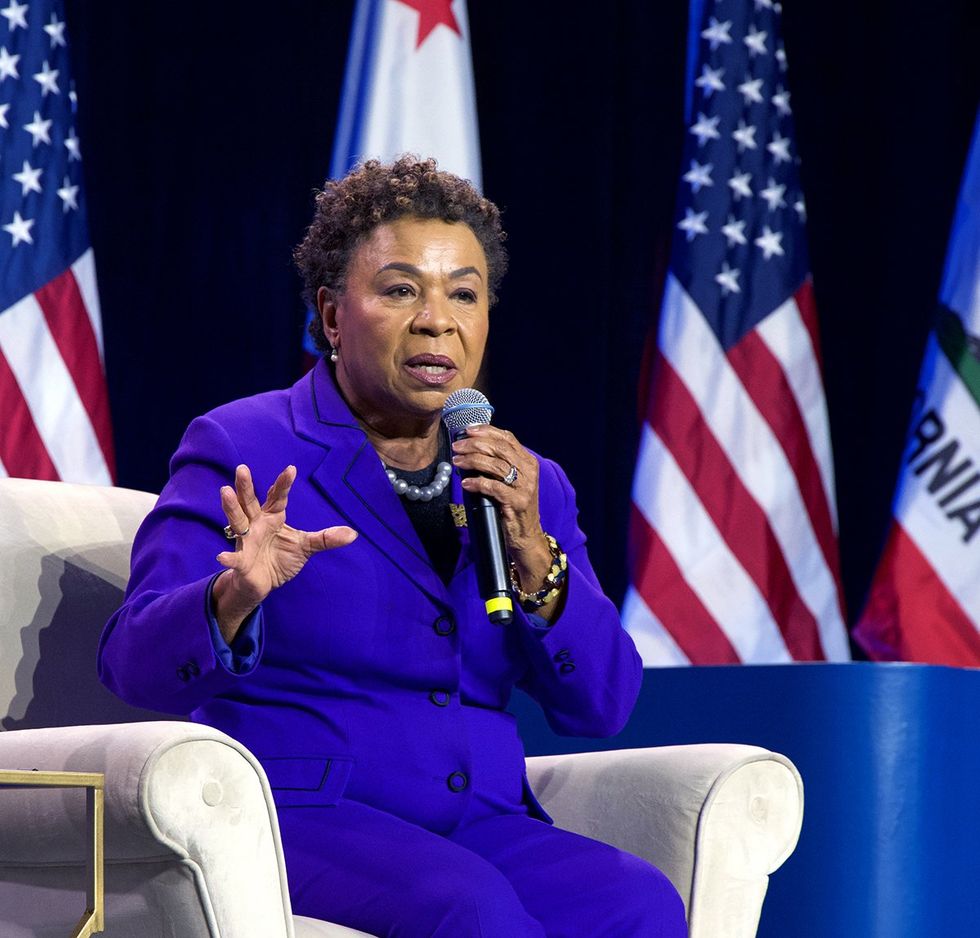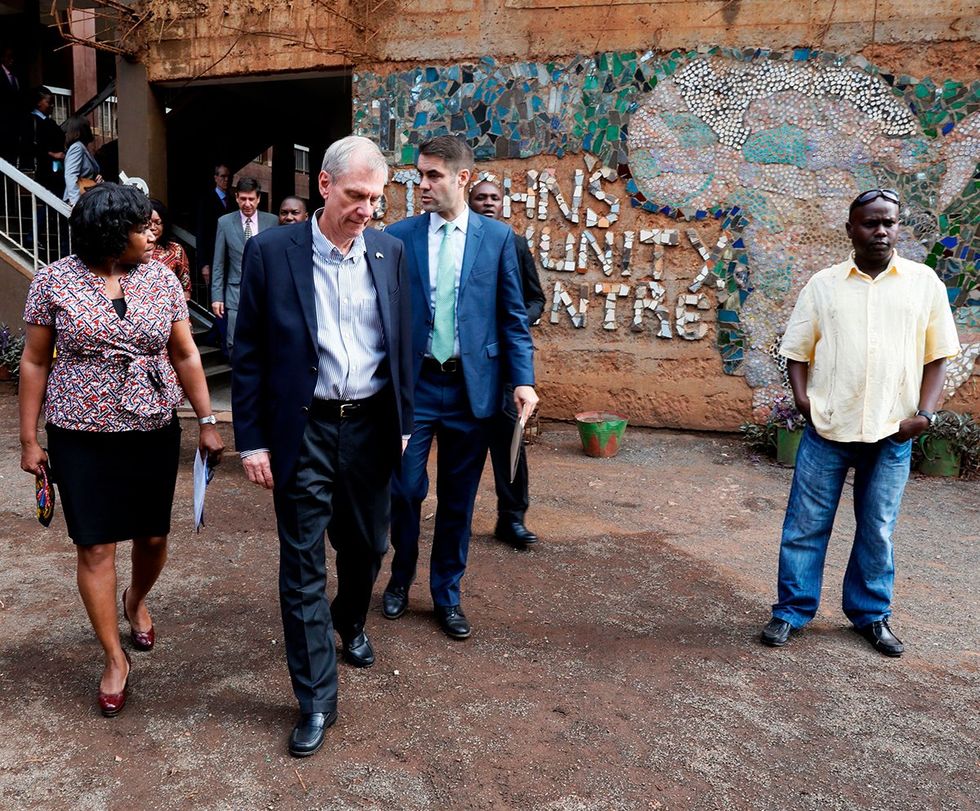World AIDS Day was first observed in 1988, a decade in which the average life expectancy for someone with AIDS was three years after diagnosis. All around the globe, to speak of AIDS was to dread the overwhelming scale of this pandemic.
Today, 36 years later, thanks to the tireless efforts of organizers, advocates, activists, and policymakers coming together, AIDS-related deaths have been cut by almost two-thirds, and new HIV infections have been reduced by more than half. These combined actions have saved millions of lives worldwide and ensured that millions of babies were born free from HIV.
Since I came to Congress, I've worked alongside tireless advocates from California, across the country, and worldwide, who fought for access to life-saving medications despite overwhelming odds. Their courage is the reason we continue to make strides in this fight. As I prepare to leave Congress at the end of the year, I take pride in having authored or co-authored every major piece of HIV/AIDS legislation, helped develop a global framework that has transformed global health , and has not let up once in this fight AIDS.
Yet there is much more to be done to ensure that we finally defeat HIV, and I look forward to working to continue to keep this issue front and center.
 Sheila Fitzgerald/Shutterstock
Sheila Fitzgerald/Shutterstock
In 2000, I co-authored the Global AIDS and Tuberculosis Relief Act of 2000, which established the framework for what would become the Global Fund to Fight AIDS, Tuberculosis, and Malaria. The following year, with the Congressional Black Caucus, I began working with President George W. Bush on a groundbreaking global AIDS initiative. This effort became the President's Emergency Plan for AIDS Relief (PEPFAR). PEPFAR has been a profound and transformational investment, saving more than 25 million lives and providing care for more than 7 million children orphaned by AIDS. Almost a decade later, in 2010, I worked with President Obama to draft the National HIV/AIDS Strategy to fight HIV in the United States. And in 2011, I co-founded the bipartisan Congressional HIV/AIDS Caucus in the House of Representatives. These, among other pieces of legislation, have saved millions of lives and helped reduce the dangerous stigma around HIV & AIDS.
Let's be clear: It wasn't legislators who led this fight—it was the activists and advocates. The AIDS movement started in communities around the world that were directly and personally impacted by the onslaught of the virus and the callous apathy of governments. These grassroots organizers channeled their hurt and anger into activism and life-saving action. They organized, protested, and used every lever to push the government to aggressively address the epidemic. We owe a huge debt of gratitude to these activists, and too many of them have not lived to see the progress we have made.
Through our combined efforts, being diagnosed with HIV today is no longer a death sentence. People living with HIV can live long lives, benefiting from decades of medical advancements and advocacy. More recently, public health agencies in the United States have reinvigorated HIV efforts and expanded access to testing, PrEP, and PEP for HIV prevention — especially for young people — and every day, we advance the scientific knowledge that improves treatment and prevention options that will one day lead us to a cure and a vaccine.
However, we must not become complacent. The House Republican majority has decided to target domestic and international HIV work in their Fiscal Year 2025 appropriations bills, proposing cuts that would reduce domestic HIV research, decrease funding for the Ryan White program, and undermine the Minority AIDS Initiative. Even PEPFAR is at risk — last year, PEPFAR was attacked by extremists, and we could only secure a short-term reauthorization of this vital program instead of the five-year reauthorization many of my bipartisan colleagues and I fought to achieve. Our fight to end HIV is a global one, and the U.S. must continue to lead by example in supporting international efforts like PEPFAR and the Global Fund.
 JONATHAN ERNST/AFP via Getty Images
JONATHAN ERNST/AFP via Getty Images
These extremists have politicized what is a common-sense and bipartisan issue and have blocked life-saving progress. That is terrifying. The right to a healthy, prosperous life cannot be politicized at this inflection point in our country's history. Life-saving research is not controversial, and ending this epidemic is not a partisan issue; the only way to do this is together. Ending HIV is not a partisan issue—it's a matter of human dignity and public health. We have seen both Democratic and Republican administrations make historic strides in this fight. Now more than ever, we must come together across party lines to finish what we started.
As we work to address the ongoing impacts of HIV in the U.S., we must also address the disparities that persist in HIV prevention and treatment access. Latine communities are experiencing rising positivity rates. At the same time, Black and Brown individuals, particularly gay and bisexual men of color, represent a disproportionately high number of new diagnoses. Additionally, stigma continues to discourage many from seeking necessary care and treatment.
Even in the face of our progress, we must remember that our fight is not over. According to UNAIDS, 1.3 million acquired HIV in 2023 alone- and only 65% of people diagnosed with HIV in the U.S. were virally suppressed—a figure that falls well below many other countries. The activists who have led this fight for 40 years continue to push on, but they need our support. We cannot stop now. We can increase access to treatment, we can eliminate stigma, and we can end the HIV epidemic by 2030 — together.
I look forward to fighting alongside you to finally beat HIV for everyone, everywhere.
Congresswoman Barbara Lee represents California's 12th congressional district.
Voices is dedicated to featuring a wide range of inspiring personal stories and impactful opinions from the LGBTQ+ and Allied community. Visit advocate.com/submit to learn more about submission guidelines. We welcome your thoughts and feedback on any of our stories. Email us at voices@equalpride.com. Views expressed in Voices stories are those of the guest writers, columnists and editors, and do not directly represent the views of The Advocate or our parent company, equalpride.


 Sheila Fitzgerald/Shutterstock
Sheila Fitzgerald/Shutterstock JONATHAN ERNST/AFP via Getty Images
JONATHAN ERNST/AFP via Getty Images

































































Charlie Kirk DID say stoning gay people was the 'perfect law' — and these other heinous quotes